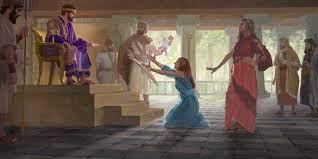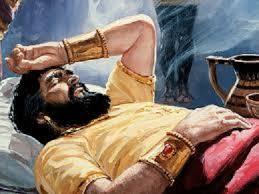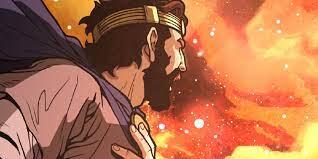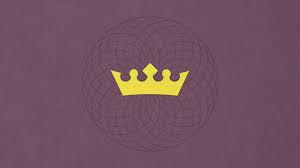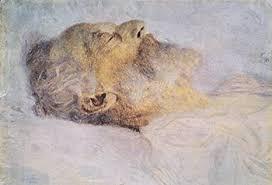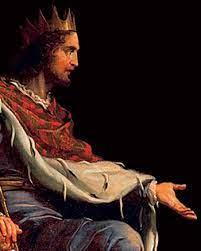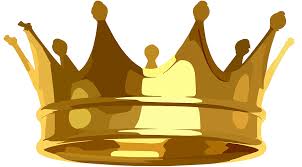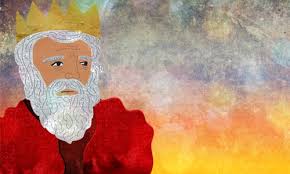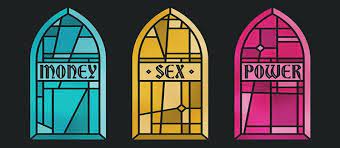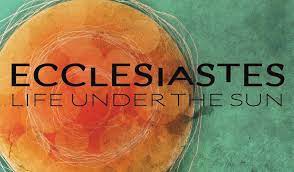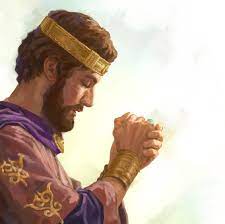Au – Solomon’s Kingdom First Kings 4: 1-28
Solomon’s Kingdom
First Kings 4: 1-28
Solomon’s kingdom DIG: What was Solomon’s Isra’el like economically? Militarily? Spiritually? What do these verses reveal about taxes? Who brought tribute? Why? What major project will Solomon use forced labor? How did the district governors supply the daily provisions for the royal court each month? What extra pressure might ben-Abinadab and Adoniram face under Solomon’s reign? What was the extent of Solomon’s kingdom?
REFLECT: Since the Israelites were once slaves themselves in Egypt, why would Solomon have forced labor? Wouldn’t you think he would have been extremely sensitive to that issue? Where is the forced labor where you live? Was Solomon indulgent? Since he was born with a silver spoon in his mouth, is it any surprise that he was so privileged? What sacrifices can you make to help those who are less fortunate than you are? Who can you help this week?
The deep source of joy in Solomon’s kingdom was the faithful promises of God.
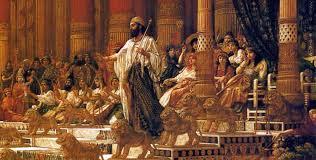
We find here an indication of the organizational development of the kingdom under Solomon. There had already been considerable changes made in Isra’el during the reigns of the previous two kings. Under Sha’ul the loose confederacy of twelve tribes began to be solidified into a kingdom, but his style of government seems to have been relatively modest and simple. There was no great central bureaucracy and no lavish court, and there is no record of any formal system of taxation. David developed a kingdom in a truer sense, and he had far greater and more lasting success in defeating Isra’el’s enemies. He captured Jerusalem from the Jebusites and made it a strong and permanent capitol. David seems to have had some system of internal taxation, and he certainly received tribute from his various vassal states. Solomon, therefore, inherited a stable kingdom. He did not expand the empire but did establish a well-organized and strong central government. He developed a system of taxation and forced labor to support his great building projects, the foremost being the Temple and the royal palace.93
Solomon’s royal cabinet (4:1-6): The chapter begins with an orderly account of the members of the royal cabinet. Solomon’s wisdom is now shown in his administrative abilities, including the choice of cabinet members. Today this information might be presented in the form of an organizational flow chart, but the Bible simply lists the names of Solomon’s staff, with their official duties. The names of some of these men are familiar; we have met them before. The support of Nathan, Zadok, and Benaiah was critically important in Solomon’s rise to power. It is not therefore surprising to see these men and their sons offer prophetic, priestly, and military leadership for the kingdom. Solomon put the right men in charge – men who were loyal to his kingship and willing to do kingdom work.94
So King Solomon ruled over all Isra’el. And this was his royal cabinet: Azariah, grandson of Zadok, was the high priest. He was the son of Ahimaaz the grandson of Zadok, the priest who had served David so faithfully. It appears that Ahimaaz had died and therefore his son was given the office (Second Samuel 15:27 and 36; First Chronicles 6:8-9).
While David had only one scribe, Solomon had two, Elihoreph and Ahijah, who were the sons of David’s scribe Shisha. He was also known as Seriah (Second Samuel 8:17), Sheva (Second Samuel 20:25), and Shavsha (First Chronicles 18:16). Solomon’s kingdom was much larger and more complex than that over which his father ruled, so keeping records would have been more demanding.
Jehoshaphat son of Ahilud had been a recorder during David’s reign (Second Samuel 8:16), and Benaiah son of Jehoiada had been appointed commander in chief of the army by Solomon (First King 2:35). He was born into a priestly family but chose military life instead.
Since both Zadok and Abiathar had served with David, hence they are found in this official roster. Zadok the priest had died and was replaced by his grandson Azariah (see above). It is somewhat surprising to see that despite his earlier opposition to Solomon (to see link click Ap – Putting the Kingdom First: Solomon banishes Abiathar), Abiathar was still a priest and was apparently restored to the royal court.
Azariah, son of Nathan, was in charge of the twelve district governors who supervised the twelve administrative districts that Solomon had created in Isra’el (see below). Wheather his father was Nathan the prophet (First Kings 1:11), Nathan the son of David (Second Samuel 5:14), or another man named Nathan is not explained. It was a popular name in Isra’el.
Zabud son of Nathan was a priest who served as a special adviser to the king, and Ahishar was Solomon’s palace administrator, handling the complex affairs of the king’s household once it was built.95
Yet one thing in this list seems to strike a sour note, especially for a nation that had been enslaved in Egypt. Adoniram, son of Abda, was in charge of forced labor. This was something the prophet Samuel had warned about when the people of Isra’el first clamored for a king. Samuel told them to be careful what they wished for, because one day their king would take their children and force them to do his work (First Samuel 8:16-18). Putting someone in charge of forced labor was another warning sign that Solomon was not the ideal king, and that tragic flaws in his character would eventually lead to his spiritual downfall.96
Solomon’s administrative districts (4:7-21): Solomon marked out twelve districts of various sizes and put a district governor over each one. The boundaries of the districts ignored the traditional boundaries of the tribes and even included territory that David had conquered in battle. Each district provided food for the king and the royal household each month. It is likely that the district governors also collected taxes, supervised the recruiting of soldiers, and laborers for the Temple and Solomon’s other building projects. By establishing new districts that crossed over old boundaries, Solomon may have hoped to minimize tribal loyalty and eliminate some tension between Judah and the other ten northern tribes. Instead, the plan only aggravated the tension, especially since Judah was not included in the redistricting program. Judah, being the royal tribe that contained the royal City, was administered separately and was unchanged and untaxed.
Any king with seven hundred wives and three hundred concubines, plus numerous officers and frequent guests, would have a large household to feed. The Queen of Sheva came (see Bu – Solomon and the Queen of Sheba) with a very large entourage that must have included several hundred people. According to 4:22-23 below the provisions needed to feed the royal court were enormous. Solomon also needed grain for his many horses, which may have been how the barley was used. The conquered nations may have looked upon those monthly “donations” as part of their tribute to King Solomon, but the Jewish tribes considered the whole system to be a humiliating form of extortion.97 After Solomon’s death, it was no wonder that the ten northern tribes rose up in revolt against his son Rehoboam when he said: My father made your yoke heavy, but I will add to your yoke! My father controlled you with whips, but I will control you with scorpions (1 Kgs 12:14).
These were their names:
Ben (Hebrew: meaning son of)-Hur – in the hill country of Ephraim, a fertile district between the land of Benjamin in the south and the plain of Jezreel in the north.
Ben-Deker – in Makaz, Shaalbim, Beth Shemesh on the Jerusalem-Jaffa road and Elon Bethhanan, in the territory of Dan on the west side of the Judean hills.
Ben-Hesed – in Arubboth on the coastal plain between the southern part of the hills of Judah and the Mediterranean Sea (Sokoh and all the land of king Hepher were his).
Ben-Abinadab was Solomon’s first cousin and son-in-law because he was married to Taphath daughter of Solomon (First Samuel 16:8 and 17:13) – the area of Dor on the sea-coast in the rich plain of Sharon between Mount Carmel and the Mediterranean.
Baana son of Ahilud, brother of Jehoshaphat – in Taanach and Megiddo, and in all of Beth Shan next to Zarethan below Jezreel. His area also ran south from Beth Shan down the Jordan River west bank to Abel Meholah across to Jokmeam.
Ben-Geber – was in the mountainous country of the Transjordan around Ramoth Gilead (the settlements of Jair son of Manasseh in Gilead were his, as well as the region of Argob in Bashan. It’s area was fertile and occupied by sixty large walled cities with bronze gate bars). It was the most northerly of the three districts on that side of the Jordan River.
Ahinadab son of Iddo – included south Gilead and the Gad tribal lands between Mo’av and Ammon on the south and Bashan on the north. Mahanaim was the capital under Ishbaal (Second Samuel 2:8) and Absalom (Second Samuel 17:24).
Ahimaaz – in Naphtali and upper Galilee as far as Hazor on the west side of the Jordan. He was the son of Zadok (Second Samuel 15:27). Having followed and served David in adversity, he was sure of Solomon’s friendship which may have secured for him the hand of Basemath, the king’s daughter.
Baana son of Hushai – in Asher and in Aloth between Naphtali and the Mediterranean Sea, including west Galilee (thus fulfilling Genesis 49:13).
Jehoshaphat son of Paruah – in Issachar (Joshua 19:17-23) which ran around Mount Gilboa and the Valley of Jezreel between Zebulun on the north and Manasseh on the south.
Shimei son of Ela – in Benjamin, north of Jerusalem and west of Jordan, comprising the southern central Ephriam highlands.
Geber son of Uri – in Gilead (traditionally the country of Sihon king of the Amorites and the country of Og king of Bashan). He was the only governor over the district. His area covered the Transjordan south and part of Gilead.98
However famous they were in their own day, these men in charge of their districts are no longer household names. It is easy for us to overlook people like this in the Bible, with all their unfamiliar and unpronounceable names. But the lives of these men mattered to them and to God, which reminds us that we matter also. In the Kingdom of God, every person matters. Most of the people in the world have no idea who we are, and our names may sound as strange to them as names like Ben-Deker and Ahinadab sound to us. But every one of us has a name that is only known by God (see the commentary on Revelation Bb – The Church at Pergamum), as well as a spiritual gift or gifts to serve in His Kingdom. We should not be discouraged, therefore, if our service to Messiah seems insignificant or sometimes gets overlooked by others. God knows the people that belong to Him and remembers the work we do for His glory.99
The same gift that these men had is available to us today, by the work of the Ruach Ha’Kodesh. The B’rit Chadashah has a name for this gift: it is called administration (Romans 12:8; First Corinthians 12:8). Most people probably think administration as one of the less important spiritual gifts. Some people may even think that getting the congregations of God better organized will only set up a spiritual bureaucracy. But anyone who has ever been involved with something that was poorly planned and poorly executed knows how important this gift is.
The joy of Solomon’s kingdom had a deeper source than simply the king’s ability to get things organized. By itself, good organization is not able to bring true spiritual joy. It is a necessary, but not a sufficient condition for a joyful kingdom. The deep source of joy in the kingdom of Solomon was the faithful promises of God. We see the promises kept in the happy summary that follows the list of Solomon’s district governors.
The vocabulary here in First Kings 4:20-21, with all its talk of sand on the seashore and kingdoms from the Euphrates River to Egypt, refers directly to the covenant promises that YHVH made to Abraham. The people of Judah and Isra’el were as numerous as the sand on the seashore (Gen 22:17); they were eating, drinking, and rejoicing. And Solomon ruled over all the kingdoms from the Euphrates River to the land of the Philistines, as far as the border of Egypt (Gen 15:18; Ex 23:31; Josh 1:4). This did not fulfill the boundaries of the Land Covenant (see the commentary on Deuteronomy Fp – Restoration After Repentance) because all those kingdoms were put under tribute and were not considered part of Isra’el. Now those promises of the Abrahamic covenant were coming true, to the joy of God’s people. Those nations brought tribute and were Solomon’s subjects all his life (Gen 12:2-3; 15:1, 18:18 and 22:17). Now the wealth of the nations was flowing to Solomon, just as God had promised. Kings were coming to bring tribute to his royal treasury, swearing loyalty to the house of David, and promising loyal service to Solomon as Isra’el’s mighty king. Through the reign of Solomon’s kingdom, the blessing of Abraham was coming to the nations.100
Dear Heavenly Father, Praise You for Your faithfulness to keep every promise You make! How awesome are Your promises to those who love You, “For God Himself has said, ‘I will never leave you or forsake you’ (Hebrews 13:5).” How special it is to have the God of the universe always near to me. Not only are you always near to me, You are also Almighty Sovereign God who controls all! ADONAI appeared to Abram, and He said to him, “I am El Shaddai (Genesis 17:1b-c). Nothing is too hard for You. Life and death are in Your power. You are more powerful than a huge army with many soldiers (Revelation 19:11-21). You are our powerful, immovable Rock! (Psalms 18:2, 31, 19:14, 31:3, 94:22). How wonderful Your promise to go ahead of me to guide all that happens to me for my good. Now we know that all things work together for good for those who love God, who are called according to His purpose (Romans 9:28). You are Wonderful! It is with unspeakable depth of great love that I bow before You in humble adoration. In Yeshua’s holy name and power of His resurrection. Amen
Solomon’s daily provisions (4:22-28): Such an impressive government required vast resources to continue operations. Estimates of the number of persons Solomon sustained vary from fourteen thousand to thirty-two thousand. These figures are not unusual given what other contemporaries of Solomon employed. Coupled with the military expenditures related to the horses mentioned, the money earmarked for the central government appears to be great. Still, the money may have been well spent, since the Land was at peace.101
Solomon’s daily provisions (literally bread, however, it embraces all kinds of food) were thirty cors (That is, probably about 5.5 tons or about 5 metric tons) of the finest flour and sixty cors (That is, probably about 11 tons or about 10 metric tons) of meal, ten head of stall-fed cattle, twenty of pasture-fed cattle and a hundred sheep and goats, as well as deer, gazelles, roebucks and choice fowl. For he ruled over all the kingdoms west of the Euphrates River, from Tiphsah to Gaza, and had peace on all sides. During Solomon’s lifetime the people of Judah and Isra’el, from Dan to Beersheba, from the northernmost to the southernmost part of the Land, lived in safety. So that was the extent of his reign, north, south, east, and west. The statement that everyone sat under their own vine and under their own fig tree (First Kings 4:22-25) speaks of undisturbed prosperity, and this became a favorite catch phrase used by the prophets to point to the ideal conditions prevailing during the Messianic Kingdom (Micah 4:4; Zechariah 3:10). The fact that a man could enjoy the fruit of the vine and the fig tree meant that the people were able to develop their land without the disruption of war. In addition, the crop yields were abundant because of the blessing of God.102
But contrary to the teachings of the Torah, Solomon multiplied horses in the Land (Deuteronomy 17:16), and built special cities for housing them. Solomon had forty thousand stalls for chariot horses, and twelve thousand horses for his charioteers (First Kings 4:26 and 10:26-29; Second Chronicles 1:14-17, 9:25 and 28). Because First Kings was written before Second Corinthians, the seeming contradiction in Second Chronicles 9:25, reading four thousand, was probably a copyist error.
The district governors, each in his month, supplied provisions for King Solomon and all who came to the king’s table. They saw to it that nothing was lacking. They also brought to the proper place their quotas of barley and straw for the chariot horses and the other horses (First Kings 4:27-28). It is interesting to realize that at this point in the story the author expresses neither approval or disapproval of Solomon’s activities. Certainly, the author presents Solomon as a man made wise by ADONAI. Of course, the people seem happy now. Yet, the warnings of Moshe, especially the one about collecting great numbers of horses, and Samuel’s cautions about royal excess (First Samuel 8:10-18) linger in our minds. What long-term good can come from such disobedience to God’s Word?103
Everything good in Solomon’s kingdom is greatly surpassed in the Kingdom of Yeshua Messiah, which is superior in every way. His Kingdom is better organized. This is the work of the Ruach Ha’Kodesh, whom Yeshua has sent to bring order to your home, your place of worship, to order your life and relationships. This order is not imposed on us from the outside, but comes from the inside out, as the Spirit works within us to produce patience, forgiveness, gentleness, self-control, and the rest of the spiritual gifts (see the commentary on First Corinthians Ct – The Priority of Love Over Spiritual Gifts).
Messiah’s Kingdom is bigger than Solomon’s kingdom, with more people in it, coming from more nations. Yeshua said that when He was lifted up, He would draw all people to Himself (John 12:32). On the cross He took the guilt of our sins upon Himself, dying in our place, offering His blood to atone for our sin. But Messiah also announced His intention to save people from every nation. In being lifted up, He would draw the nations to Himself. And that is exactly what happened. Down through history, untold millions of people have joined the Kingdom of God: saved by grace alone, through faith alone, in Messiah alone. And it is happening right now, as believers share the Gospel with their friends and families, as missionaries go into the whole world with the Good News. The promise made to Abraham, which was only partially fulfilled in the days of King Solomon, is coming true today.
How happy we are to belong to this great Kingdom! As the people of God, we find our true joy in the prosperity of the King. The more He is worshiped, the more we rejoice. This is why we love to see spiritual order come to broken lives and damaged relationships. It is why we take such an active interest in the Kingdom work that ADONAI is doing in our own community and around the world. The work of God’s Kingdom is the most important work in the world, and our joy is to see it grow.
As we minister in our giftedness, we do not depend on our own abilities, least of all in the area of administration. Rather, we depend on the Kingdom promise that Yeshua will be with us as we do His Gospel work in the power of the Ruach. Our desire is for Yeshua Messiah to receive as much honor as possible, from as many people as possible, in as many places as possible, for He alone deserves all the glory.104



